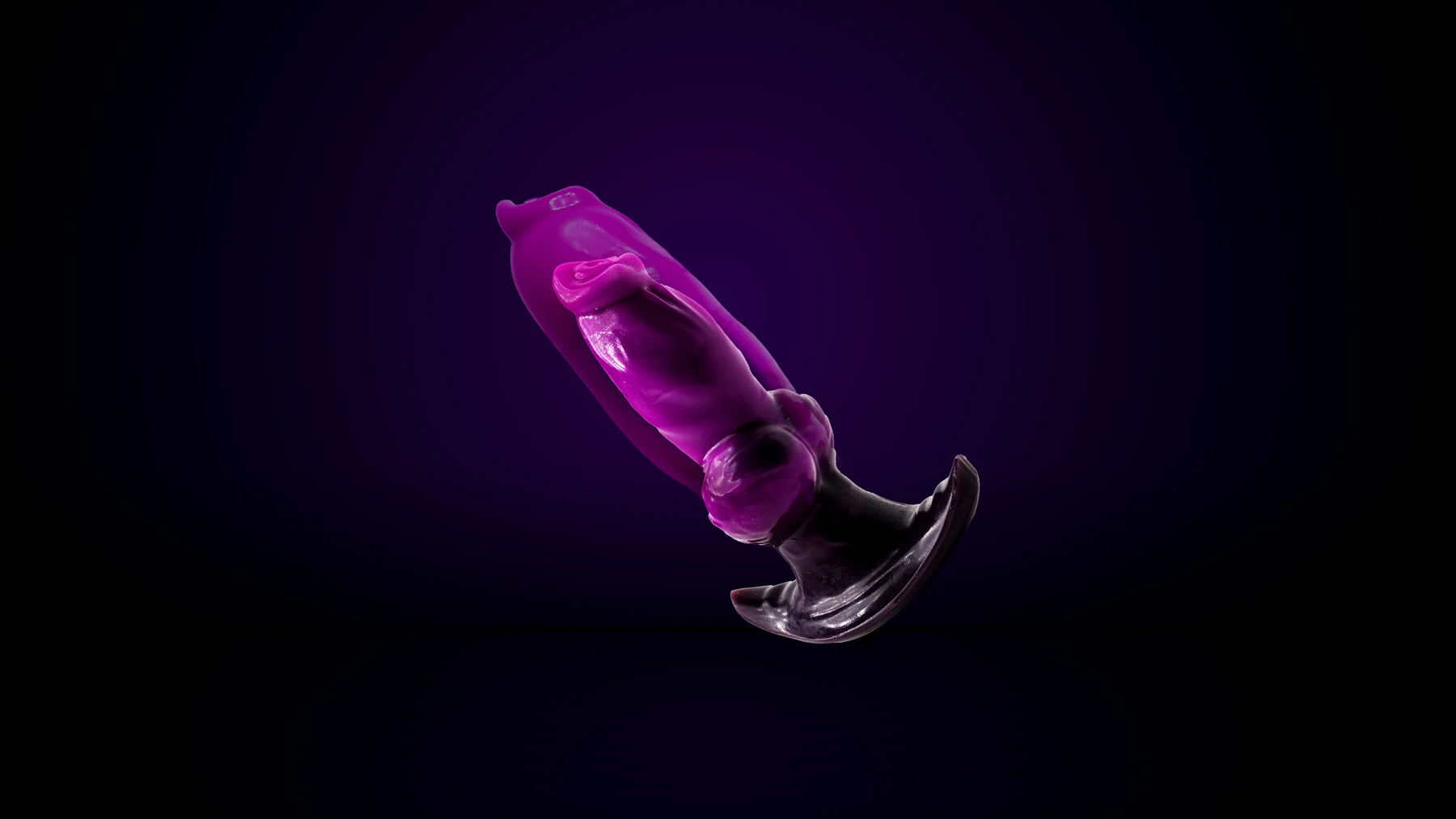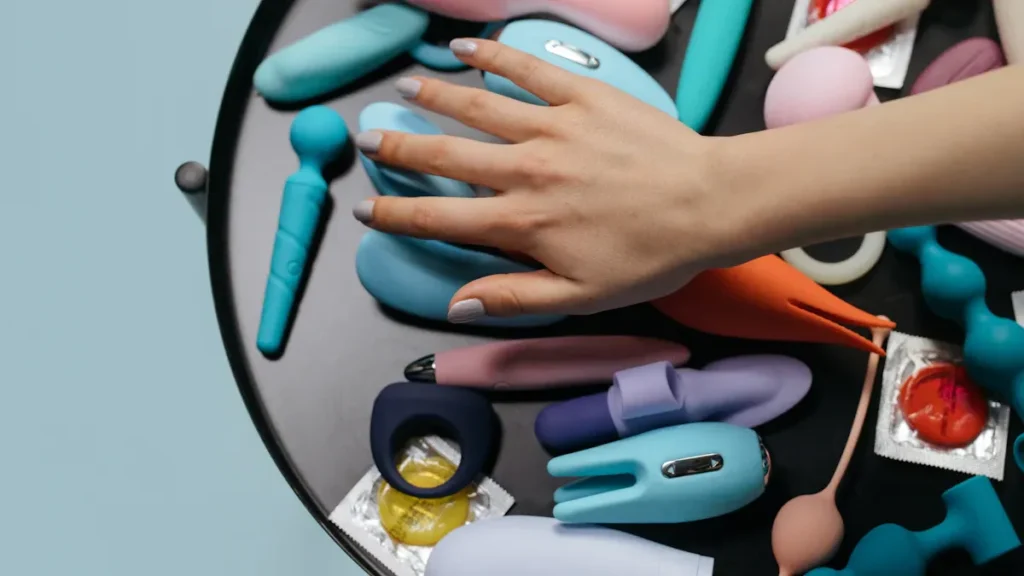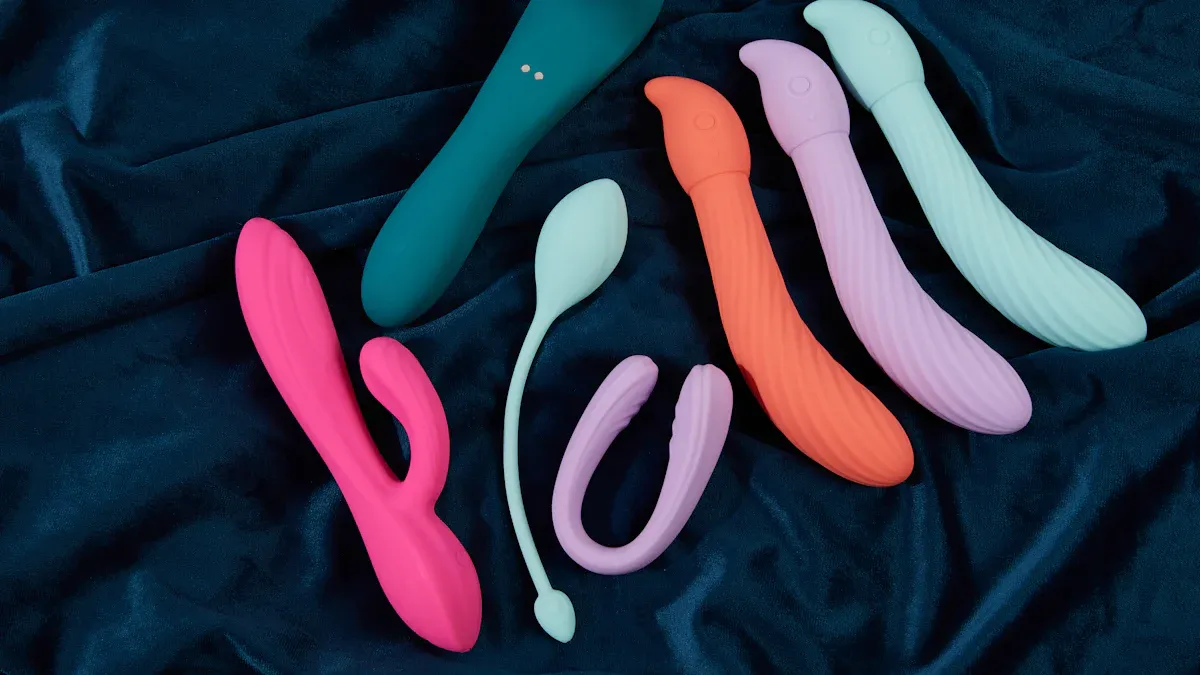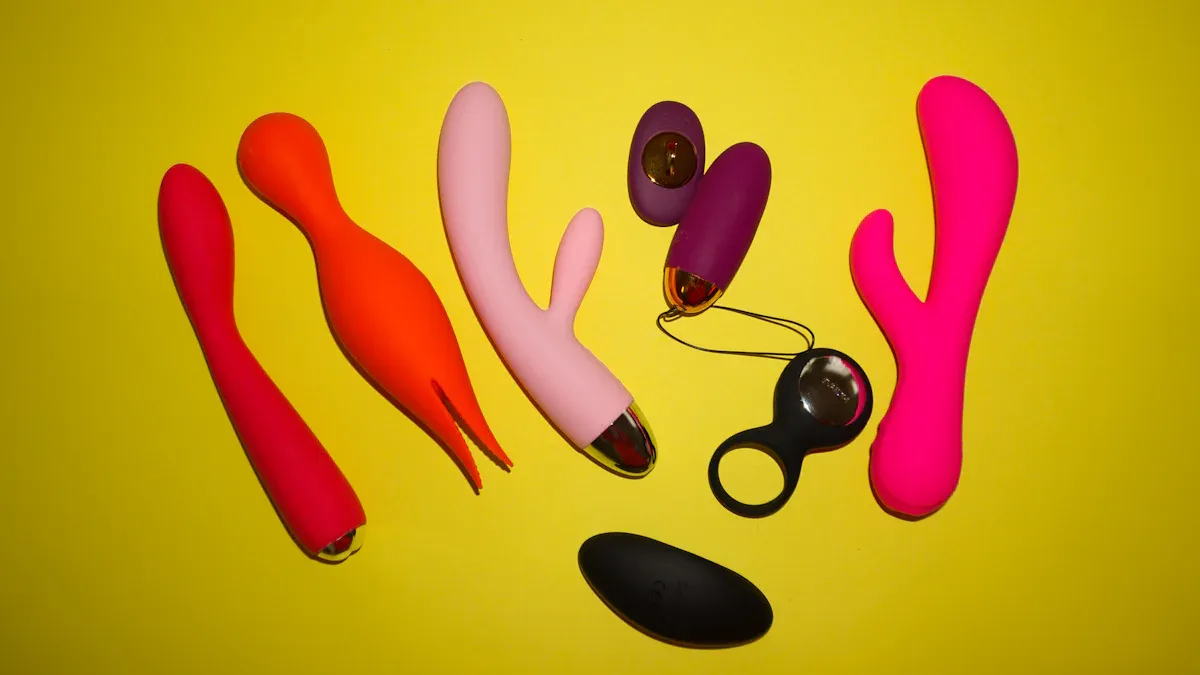What Makes a Dildo Safe and Is PVC Included
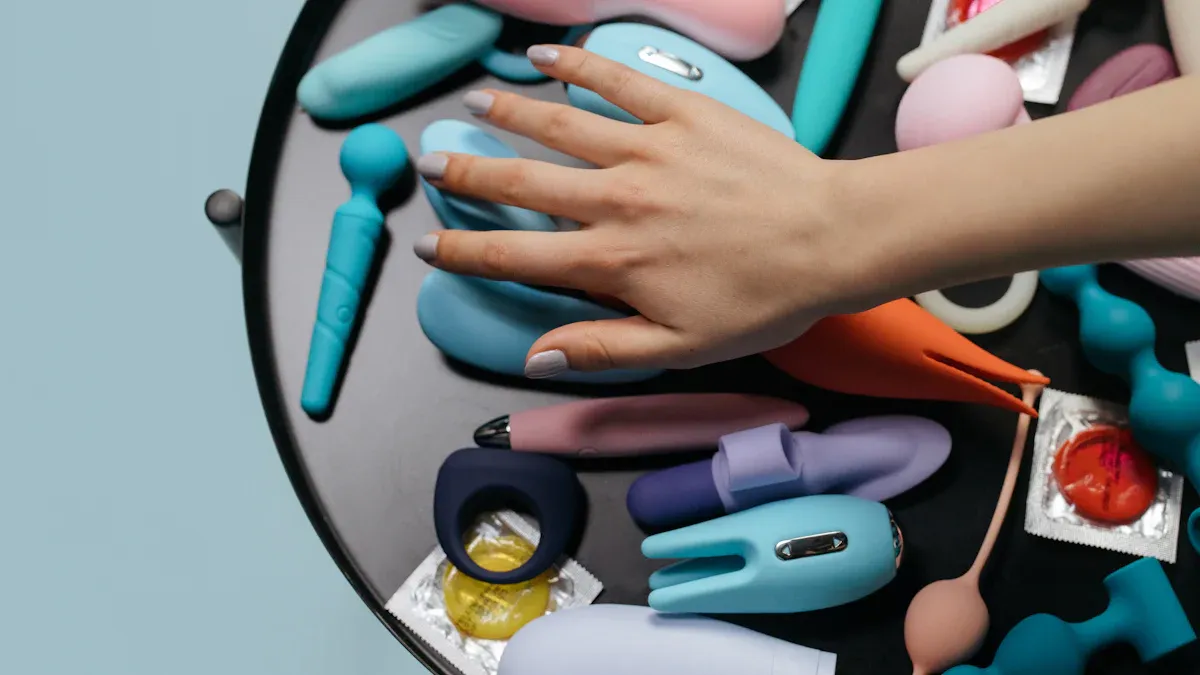
You might ask, are pvc sex toys safe? Experts say not every dildo is safe for your health. Many PVC Dildos, Heated Dildos, and even a double sided dildo or inflatable dildo can have chemicals that may not be safe. Picking body safe sex toys keeps you healthy and helps you stay away from risky stuff. Always look at what your dildo is made from. Learning about safety helps you make smart choices.
Are PVC Dildos Safe?
Quick Answer
You might wonder if pvc dildos are safe for your body. The answer is not easy. Experts and health groups say pvc sex toys can be risky. Some new products say they are phthalate-free. But this does not always mean they are safe. PVC dildos can have other chemicals that come out when you use them. These chemicals might mess with your hormones or cause skin problems. They could even hurt your immune system. How safe pvc sex toys are depends on what they are made of, how you clean them, and how much you use them.
Note: Even if a pvc dildo says “phthalate-free,” it might still have bad chemicals. If it smells strong or feels sticky, it could be unsafe.
Main Concerns
When you pick a dildo, you want it to be safe and clean. PVC sex toys have some health risks you should know about:
Chemical Additives:
PVC dildos often have phthalates, phenol, cadmium, or other chemicals. These can come out, especially if the toy gets warm or vibrates. Phthalates can mess with your hormones and make it hard to have kids. Even if a toy says “phthalate-free,” it might still have other bad stuff.Porosity and Hygiene:
PVC sex toys have tiny holes. This means germs can get trapped inside. It makes them hard to clean. Germs can build up and cause infections. Using a condom on a pvc dildo can help, but it does not fix every problem.Degradation Over Time:
PVC dildos can break down if you use them a lot or store them wrong. You might smell chemicals, feel stickiness, or see color changes. These signs mean the toy is not safe anymore.Regulatory Gaps:
In the EU, there are strict rules about chemicals in sex toys. But many pvc sex toys come from places with fewer rules. Labels can trick you, and you might not know what is inside.User Complaints:
Many people say pvc dildos smell bad, feel sticky, or lose their shine. Some people get rashes or burning after using them. These problems show that pvc sex toys are still not always safe.
Tip: Always wash your dildo with soap and water before and after you use it. Do not use harsh cleaners. They can hurt your skin or mess up good bacteria.
Think hard about the safety of pvc sex toys. Experts say you should pick non-porous materials like medical-grade silicone or ABS plastic. These are easier to clean and safer for your health. Your health and safety are the most important things when you choose a dildo.
Health Risks of PVC
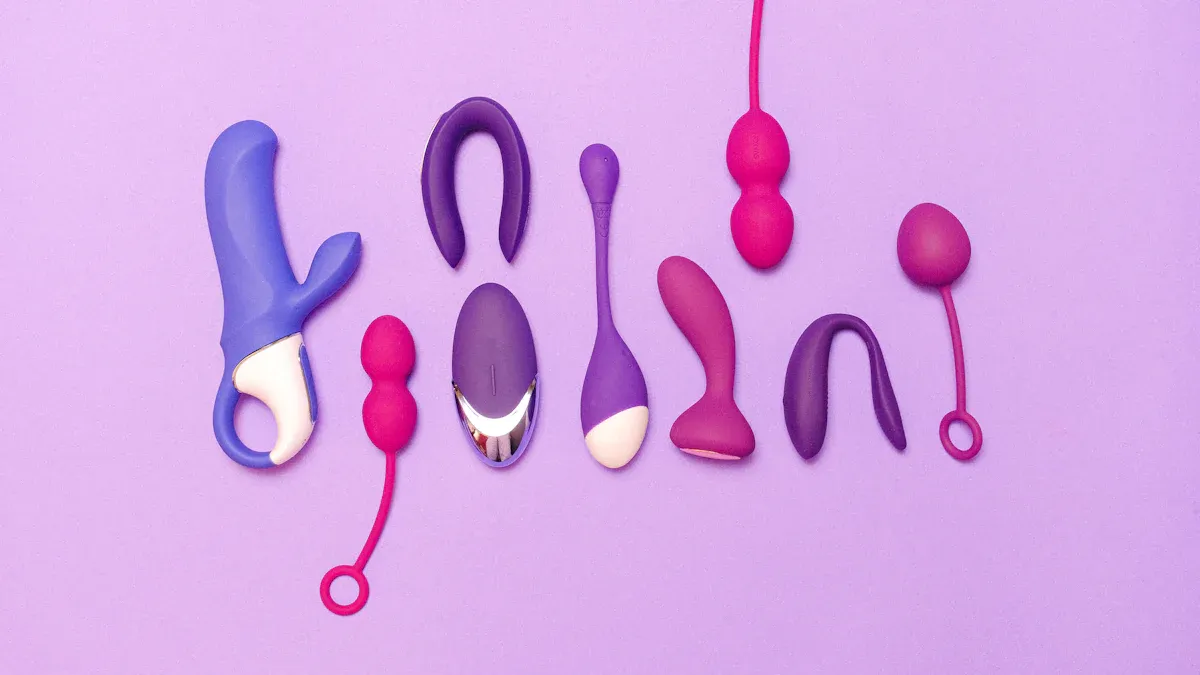
Phthalates and Chemical Leaching
When you use pvc sex toys, your body can touch harmful chemicals called phthalates. These chemicals make pvc dildos bendy and soft. Studies show phthalates can come out of a pvc dildo when you use it. Your skin can soak up these chemicals. This can mess with your hormones and hurt your health. Some scientists say phthalates can cause problems with having babies, your thyroid, and even your brain. Even if a label says phthalate-free pvc, you cannot always believe it. The sex toy industry does not have strong rules. Many pvc sex toys still have bad chemicals.
Health Risks Linked to Phthalates in PVC Sex Toys |
|---|
Endocrine disruption (hormone problems) |
Reproductive issues (fertility, pregnancy) |
Thyroid dysfunction |
Allergies and asthma |
Neurodevelopmental delays |
Obesity and metabolic changes |
Porosity and Infection
Porous pvc sex toys have tiny holes that hold germs and fungus. You cannot clean these holes well, even with soap and water. Germs can stay inside your dildo and cause infections. Some health risks of pvc are yeast infections, urinary tract infections, and skin irritation. If you share a porous dildo, you can spread infections or even STIs. Experts say to use a condom on porous toys, but this does not stop all health risks.
Porous pvc sex toys hold dirt, germs, and body fluids.
Cleaning only gets rid of germs on the outside, not inside.
Using a condom helps, but toxic chemicals can still come out.
Experts say non-porous materials are safer for your health.
Degradation and Long-Term Use
PVC dildos can break down as time goes by. You might smell something strong, feel stickiness, or see a color change. These signs mean the toy is letting out more bad chemicals. Health experts say a bad smell or sticky feel means there are dangerous things in the toy. Cheap pvc sex toys can have unknown stuff inside, which makes health risks higher. Throw away any dildo that smells bad, feels sticky, or looks different than before. Getting new pvc sex toys often can lower health risks, but using safer materials is best for your health.
Tip: Always look at your dildo for changes in smell, color, or feel. These changes mean the toy may not be safe for you anymore.
Body Safe Sex Toys: Alternatives
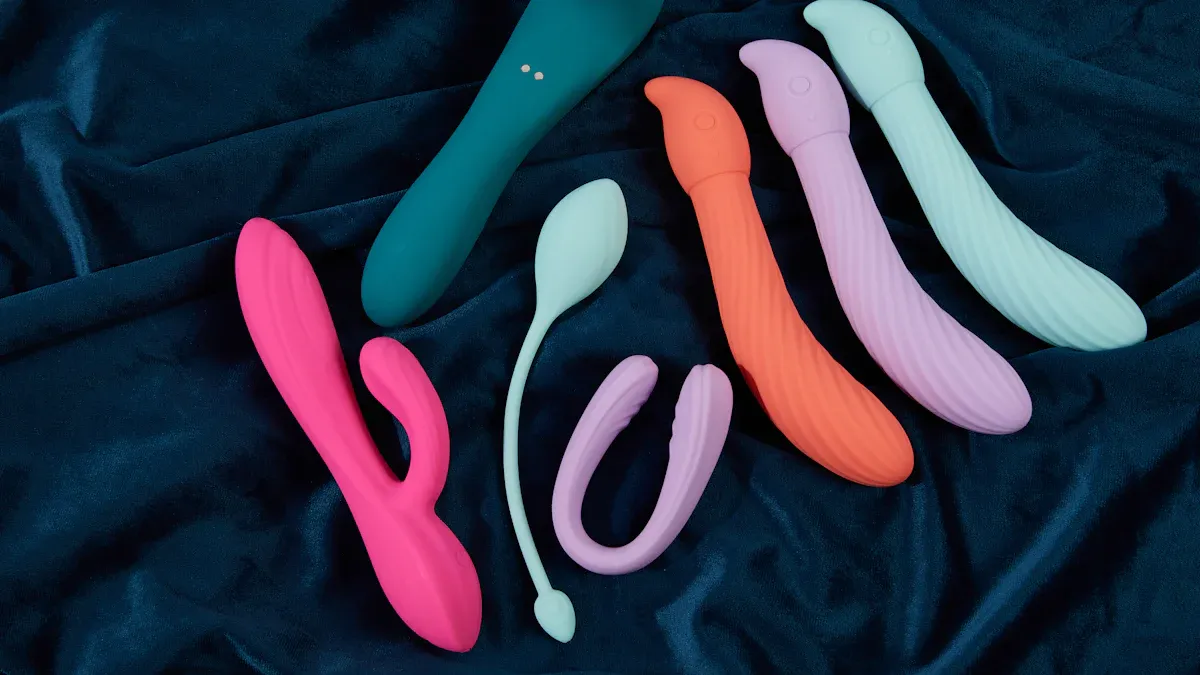
Silicone
You might ask if silicone sex toys are safe. Silicone is one of the safest choices for dildos. Medical-grade silicone is soft and bends easily. It does not cause allergies. This silicone is nonporous, so germs cannot get inside. You can wash it with soap and water. You can even boil it to make sure it is clean. Platinum-cured silicone is the best kind for safety. It does not let out bad chemicals and stays firm for a long time. Some toys use peroxide-cured silicone, which is also safe if made by a good company. Always look for “medical-grade” on the label. Not all silicone toys are made the same way. Still, good brands make high-quality silicone dildos that are safe for your body.
Material Type | Health and Safety Considerations | Key Points |
|---|---|---|
Platinum-cured Silicone | This is the safest and most stable kind. It does not let out bad chemicals. It is used in hospitals and food. It needs safe colors. | It stays stretchy and firm. It is the best kind for safe silicone sex toys. |
Peroxide-cured Silicone | This can be safe if made right. It is cheaper to make. If not made right, it can have leftover chemicals. | Needs to be made by a good company. It is a little less strong than platinum silicone. |
Tin-cured Silicone | This is not safe. It lets out bad chemicals when made. It gets hard and breaks over time. | Do not use this kind. Good companies do not use this way to make silicone. |
Tip: Buy silicone toys from brands you trust. Do not use toys that feel sticky or smell strong.
Glass and Metal
Are glass sex toys safe? Yes, borosilicate glass and stainless steel are both safe. Borosilicate glass is also called Pyrex. It is strong and smooth. You can boil it, put it in the dishwasher, or use any lube. Stainless steel is strong and easy to clean. It is good for people with allergies, unless you are allergic to nickel. Both glass and steel are safe choices instead of pvc sex toys. They last a long time.
Material | Key Safety Features |
|---|---|
Borosilicate Glass | Strong, does not cause allergies, has no lead, can be boiled, safe with all lubes. |
Stainless Steel | Strong, easy to clean, does not cause allergies unless you are allergic to nickel; check for nickel-free steel (18/0). |
Note: If you are allergic to nickel, pick matte-finish steel or use glass.
TPE/TPR and ABS Plastic
TPE and TPR are soft and bendy. They are usually safe and do not have phthalates. But they are porous, so germs can get inside. Only use them outside your body. ABS plastic is better for inside use. It is nonporous, easy to clean, and does not have bad chemicals. If you want safe materials, ABS plastic is a good choice for dildos and vibrators.
Material | Porosity | Chemical Risks and Composition | Hygiene and Safety Implications |
|---|---|---|---|
TPE/TPR | Porous | Might have phthalates, but some new ones do not and are safe; can break down over time | Germs can get inside; needs careful cleaning; can cause infection if not cleaned well. |
ABS Plastic | Non-porous | Usually safe, but sometimes has bad chemicals from how it is made | Nonporous, easy to clean, less germs; safer for long use but depends on how it is made. |
Tip: Look for labels that say medical-grade silicone, borosilicate glass, or ABS plastic. These are the safest materials for your health.
How to Choose Safe Dildos
Reading Labels
When you buy a dildo, always read the label first. Good labels tell you what it is made of and if it is safe. Look for words like “medical-grade silicone,” “borosilicate glass,” or “stainless steel.” These are safe choices for sex toys. Many safe dildos have certifications like FDA, ISO, or ASTM. These show the product meets strong safety rules. Some labels say if the dildo is hypoallergenic or body-safe. You should also see directions for use and cleaning. If there is a warning label, read it closely. California Proposition 65 warns if a product has too many bad chemicals. Always pick dildos with clear and honest labels to keep yourself safe.
Tip: Safe dildos usually have a lot number, product details, and safety warnings. This helps you check quality and report problems if you need to.
Avoiding Vague Terms
Many pvc sex toys use words that sound safe but are not clear. Watch out for words like “jelly,” “rubber,” or “soft plastic.” These can hide unsafe materials like PVC. Some dildos say “phthalate-free,” but they might still have other bad chemicals. “Body-safe” and “all natural” do not always mean safe. These words do not have strict rules. If you see “for novelty use only,” the company does not promise the dildo is safe for your body. Always look for real material names and stay away from unclear words.
Vague Term | What It Really Means |
|---|---|
“jelly”, “rubber” | Usually porous, may have phthalates or unsafe plastics |
“body-safe” | No official rule, can be tricky |
“phthalate-free” | Might still have other bad chemicals |
“for novelty use only” | Not for real use, no safety promise |
Trusted Brands
You should buy dildos from brands that care about safety. Trusted brands use safe materials and test their toys. Fun Factory, LELO, Tantus, and Doc Johnson are known for making safe dildos. These brands use medical-grade silicone, glass, or stainless steel. They follow strict rules and show their certifications. Experts say to check for FDA or CE marks. Buy from stores you trust so you do not get fake products. Trusted brands give you clear information about safety and how to use their dildos. They also listen to customers and make their toys better.
Remember: Using pvc sex toys safely is hard because many do not meet strong safety rules. Pick trusted brands and safe materials to keep yourself healthy.
You should always use dildos that are safe for your body. PVC dildos can be risky because they have tiny holes and bad chemicals. Health experts say you should pick body safe sex toys made from non-porous stuff. These dildos are simple to clean and last a long time.
Non-porous dildos like silicone, glass, or stainless steel help keep you safe from germs and chemicals.
Always look for damage or a strong smell before you use any dildo.
Put your health and safety first by choosing dildos from trusted brands and learning about safe materials.

